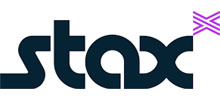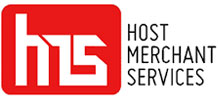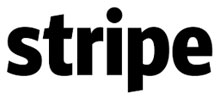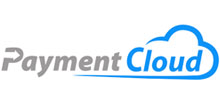In-Depth Analysis
Price
Ease of Use
Features
Support
Pros
- Simple pricing
- Multiple features
- No monthly fee
Cons
- Not for high volume merchants
Overview
Square is a financial technology company that provides mobile and web-based payment solutions for businesses and individuals. It was founded in 2009 by Jack Dorsey, who is also the CEO of Twitter.
Square’s most popular product is its Square Reader, a small device that attaches to a smartphone or tablet and allows merchants to accept credit card payments on the go. The company has since expanded its offerings to include a wide range of payment, point-of-sale, and financial services for businesses, including invoicing, payroll, and business loans.
In addition to its payment services, Square is also known for its commitment to financial inclusion, as it provides tools and services to help underbanked and unbanked individuals access financial services.
Square is headquartered in San Francisco and has a market capitalization of several billion dollars, making it a publicly traded company. The company has additional offices and operations in various countries, including the United States, Canada, Japan, and the United Kingdom.
Square’s business operates in various industries and sectors, including retail, food and beverage, professional services, healthcare, and more. The company’s products and services are designed to help merchants of all sizes and types to accept payments, manage their operations, and grow their businesses.
Square’s products and services are available to merchants through its website and mobile apps. The company has a growing network of partners, including payment processors, payment gateways, and other financial services providers.
Square History and Founder
Square was founded in 2009 by Jack Dorsey, who is also the CEO of Twitter, and Jim McKelvey, a glassblower, and entrepreneur. The story behind Square’s founding began when McKelvey could not complete a sale of one of his glass works because the customer wanted to pay with a credit card, and McKelvey needed the ability to accept credit card payments. This experience led him to collaborate with Dorsey to create a solution allowing small businesses to accept credit card payments using their mobile devices.
Square Reader, the company’s first product, was a small, square-shaped device that plugged into the headphone jack of a smartphone or tablet, allowing merchants to accept credit card payments through their mobile devices. The device was an instant hit, and Square quickly became one of the most popular mobile payment solutions for small businesses.
Since then, Square has expanded its product offerings to include a wide range of payment and financial services for businesses, including invoicing, payroll, and business loans. The company has also continued to focus on financial inclusion, providing tools and services to help underbanked and unbanked individuals access financial services. In November 2021, Square announced that the company was opening up its Cash App to teenagers between the ages of 13 and 17, as long as there is parental oversight. This move removes the company’s last age gate of 18 and above.
Other ways in which Square has diversified its offerings now include a digital peer-to-peer banking app, small business lending, and stock and crypto trading, having received a bank charter. The company has also expanded through acquisitions, adding Afterpay, a buy-now-pay-later provider, and Tidal, Jay-Z’s music streaming service. Furthermore, Square is intensifying its focus on Bitcoin with a crypto-focused enterprise, which was initially named TBD.
In December 2021, the company rebranded and renamed itself Block , Inc. The name Block represents the company’s growing interest in blockchain technology and cryptocurrency. The company’s crypto product also had a name change to Spiral.
Square is a publicly traded company with a market capitalization of more than 47 billion dollars and is renowned for its commitment to innovation and user-friendly payment and financial services. It remains a leader in the mobile payment and financial technology industries.
What Is Square Best At?
Square is best at providing payment processing and business management solutions for small and medium-sized businesses. The company has developed a range of products and services designed to help merchants of all sizes and types accept payments, manage their operations, and grow their businesses.
Some of Square’s key strengths include:
· Payment Processing: Square is known for its simple, secure, and affordable payment processing solutions, which allow merchants to accept a wide range of payment types, including credit and debit cards, mobile payments, and more.
· Business Management: Square’s products and services include various business management tools, including inventory management, sales reporting, customer management, and more. These tools help merchants streamline operations, make informed decisions, and grow their businesses.
· User-Friendly Technology: Square is known for its user-friendly technology, designed to be easy to use and accessible to a wide range of merchants. Square’s products and services can be used through its website and mobile apps, making it simple for merchants to manage their business on the go.
· Global Reach: Square operates globally, serving merchants in various industries and sectors. The company has a growing network of partners, which helps ensure that its products and services are available to merchants worldwide.
Reconciling with Square at the end of the day is a breeze due to its flat transaction fee system. Additionally, Square offers end-of-day customization, making the process even more straightforward. The main draw of Square’s payment processing system is its flat transaction fee structure. However, if your transaction volume rises, costs can add up quickly. In this case, you can reach out to the company to create a tailored plan that suits your needs.
Square Products and Services
Square is a financial technology company offering various products and services for individuals and businesses. Below are some of the key products and services provided by Square.
Square Point of Sale Hardware
· Square Reader – This is a mobile point of sale system that allows businesses to accept payments from their customers using a smartphone or tablet. The magnetic stripe reader is perfect for companies that are constantly on the move, such as a farmer’s market vendor, a service provider, or a food truck operator, and can be easily integrated with the company’s POS apps. It’s worth noting that the compatibility of the card reader may differ depending on the tablet or smartphone a merchant is using.
· Square Contactless Chip Reader – This is another option available from Square that is an upgrade from its predecessor in enhanced connectivity. Unfortunately, as is a familiar strategy deployed by many tech vendors, companies are looking for new ways to generate more revenue from existing products. Think of smartphone companies doing away with headphone jacks to sell their own headphones. Square sells the charger separately
· Square Stand – The product costs $149, the stand and includes much of the functionality missing from mobile devices offered by the company. The Square Stand is a versatile product compatible with several of Square’s apps. The product features a sleek design and swivels with a clean look.
This product is affordable, but if you opt for the bundle, you’ll pay $619. Your Square Stand Kit includes 25 rolls of receipt paper, a USB receipt printer, a 16-inch printer-and driven cash drawer, and the Square stand.
This particular product by Square allows merchants to build their own setup. So, if you decide against the Square Stand Kit, keep in mind that you can use any piece of hardware that works with an iPad running Square Point of Sale as well as USB-enabled devices.
· Square Register – Square Register is a cloud-based POS solution that provides businesses with a complete solution for managing their sales and transactions. This service includes various features, such as inventory management, customer management, and sales reporting. However, Square Register caters to a more upscale market with a cost of $799 (excluding the cash drawer, receipt printer, or barcode scanner). But this price provides you with a 13.25-inch screen running Square Point of Sale and a 7-inch consumer-facing display that supports magstripe, chip cards, and contactless transactions.
· Square Terminal – The Square Terminal is a compact, all-in-one payment terminal that allows businesses to accept payments from their customers using various payment methods, including credit and debit cards, contactless and chip cards. As Square’s latest hardware release, the Square Terminal combines the functionality of many different devices offered by Square into a single portable device. It has a large display that functions as a fully operational POS, with an in-built printer and cash drawer, running Square’s free app. The device supports numerous payment methods, including contactless payments.
The Terminal can be used while plugged in, but Square assures merchants that the device can operate wirelessly for a full day.
· Square Kitchen Display System (KDS) – The Square KDS system is a kitchen display system that employs an iPad screen to relay orders rather than a kitchen printer. The Square Kitchen Display System assists restaurants in organizing and fulfilling tickets transmitted from their Square POS and online ordering channels.
In addition to using Square KDS with your Square POS system, Square has gone a step further by offering its KDS as a standalone system, allowing it to be used without a POS. This subscription option is ideal for ghost kitchens and delivery-only restaurants that do not have a traditional POS. Nevertheless, Square KDS is equally effective for sit-down, counter-service, and drive-thru restaurants.
Square Applications
· Cash App – The Square Cash app is a peer-to-peer payment app that allows individuals to send and receive money from their friends and family.
· Square Charge for Desktop – a free app, merchants can process digital payments quickly and easily from their Mac or desktop.
Square Financial Services
· Square Banking – Square Banking offers seamless integration of payments, banking, and cash flow. When merchants use Square for payments and banking, everything is synchronized, allowing them to access and move their money quickly and easily, including automated options. Plus, there are no credit checks, long applications, or monthly fees.
Merchants can easily send money in and out of your account using your account and routing numbers. As a result, Square is changing the game for small business owners by providing a better alternative to the outdated, unnecessary fees and applications that have long been associated with financial services.
· Square Capital – Square Capital is a lending product for small businesses that provide access to funding based on their sales history, ranging from as low as $300 to as much as $250,000.
· Square Card – Square Card is a business debit card that allows businesses to manage their finances and access funds from their Square account. With Square Checking and Debit Card, companies can instantly spend and access their money for Square sales.
Square’s Ancillary services
· Square Virtual Terminal – Merchants can conveniently accept and document payments on their computers. This virtual terminal transforms your computer into a credit card terminal and is ideal for remote billing or taking credit card payments over the phone. Merchants can charge credit and debit card payments directly from any browser without needing special equipment or devices. Plus, businesses can record all types of payments, including cash, checks, and Square Gift Cards.
To make payment collection even more accessible, businesses can request payments via text by sending customers a secure payment link so that they can enter their credit card information confidentially and pay from any location. The transaction can be split across different payment methods, including cash, Square Gift Cards, or multiple credit and debit cards.
The Square Virtual terminal also allows for the scheduling of recurring payments for customers weekly, monthly, or yearly, and merchants can securely store card information on file. The Virtual Terminal is also integrated with Square solutions like Square Point of Sale, Square Invoices, and others. Data can be exported to accounting software such as QuickBooks.
· Square Payroll – Square Payroll is a payroll management solution that allows businesses to manage their payroll processes and pay their team members.
· Square Appointments – Square Appointments is a scheduling and appointment management solution that allows businesses to manage their appointments and customer information.
· Square Online Store – Square Online Store is an e-commerce platform that allows businesses to build and manage their online store, process payments, and manage their inventory. Merchants can launch an online store effortlessly and take orders for free.
· Square Online Checkout – this feature allows you to create and share payment links with customers.
· Square Links – this feature lets merchants easily integrate secure Square payments into existing businesses’ websites.
· Square Loyalty Program – merchants can easily create a customer loyalty program using the Square Dashboard or directly from their Square Online website.
· Square Gift Cards – With just a few clicks, businesses can set up and start selling their own gift cards. The custom gift card program is up and running in minutes and launched quickly. Merchants have the option to order physical gift cards to sell in-store or set up digital gift cards. This can then be promoted via the company’s marketing tool.
Square Marketing – Enhance customer engagement and attract new ones with personalized, one-time, and automated email and text campaigns to keep customers interested in your business. Many marketing professionals or do-it-yourself small business owners understand the need of managing a calendar of events they need to. Maybe it’s keeping track of emails to send out on holidays or other important dates.
Or perhaps many businesses would like to have auto acknowledgments of new customers signing up or existing ones reaching out with questions about payments. Other times it’s simply to lure back potential clientele that left after visiting a specific webpage. Sometimes people have this quirky habit of building up a shopping cart only to disappear. Businesses now have Square Marketing to target that audience via prompt or scheduled campaigns. Track the success of each campaign from your Square Dashboard with just a one-time setup.
To rank higher and build your brand’s online presence, Google Reviews can help convert prospective buyers into customers.
· Customer Directory – This product can store their information, view how they interact with your business, and create custom groups based on their purchasing habits. Besides, what better tool to go with Square Marketing than a database of a merchant’s customer details!
Integration options
Square can be easily integrated with various popular third-party apps and business solutions, providing a seamless experience for customers. Additionally, Square’s APIs allow for custom integrations into a merchant’s own software.
Square Pricing and Fees
Square’s pricing structure is designed to be simple, transparent, and accessible to many merchants. Square offers two main pricing models: pay-as-you-go and monthly subscriptions.
1. Pay-as-you-go – With the pay-as-you-go pricing model, merchants are charged a simple per-transaction fee for each sale they process through Square. This fee includes the cost of payment processing, as well as access to basic features like sales reporting and inventory management. The exact fee will vary depending on the type of card being processed, with higher costs for keyed-in transactions and lower prices for card-present transactions.
2. Monthly Subscriptions – Square also offers a range of monthly subscriptions, including access to additional features and benefits. These subscriptions range from basic plans with other reporting and management tools to more advanced plans with advanced features like appointment scheduling and online store management. The exact fee for a monthly subscription will depend on the specific plan that is selected, as well as the size and needs of the merchant. Here are some of the key subscription offerings from Square:
· Square for Retail: Square for Retail is a monthly subscription designed for brick-and-mortar retailers and includes features like advanced inventory management, customer management, and sales reporting.
· Square for Restaurants: Square for Restaurants is a monthly subscription designed for restaurants and food and beverage establishments and includes features like menu management, kitchen display system integration, and real-time sales reporting.
· Square for Appointments: Square for Appointments is a monthly subscription designed for service-based businesses and includes features like appointment scheduling, customer management, and real-time sales reporting.
· Square for Services: Square for Services is a monthly subscription designed for service-based businesses and includes features like invoicing, appointment scheduling, and real-time sales reporting.
· Square for Professional Services: Square for Professional Services is a monthly subscription designed for professional services businesses and includes features like invoicing, time tracking, and real-time sales reporting.
In addition to these two pricing models, Square offers a range of add-ons and integrations that allow merchants to customize their payment processing setup further. These add-ons can include things like invoicing, tip tracking, and more. A more detailed tabulation of these pricing options is as follows:
|
PLAN |
Free |
Plus |
Premium |
|
COST |
Free |
$60/month |
Custom pricing |
|
HIGHLIGHTS |
Includes: |
Includes everything in the Free plan as well as: |
Includes everything Plus plan as well as discounts on specific add-ons |
|
The basics needed for businesses to cover day-to-day operations and services, such as online ordering and point of sale. |
Ideal for businesses with multiple locations |
Most suitable for merchants that process over $250,000 annually |
|
|
Unlimited countertop POS devices. |
Best for businesses that need only one countertop POS device per location. |
Customized plan offering that scales Square's offering as merchants expand their business. |
|
|
Monday – Friday, 6 am – 6 pm Pacific Time |
+$40/ month for each additional POS device |
|
|
|
|
+$50/ month for each additional location for merchants utilizing Mobile POS |
|
|
|
|
Unlimited access to Square KDS device |
|
|
|
|
24/7/365 support |
|
|
|
Point of Sale |
Advanced POS features |
Square Payroll |
|
|
Team Management |
Square KDS (Unlimited devices) |
Square Loyalty |
|
|
Payment Processing Rate |
|
|
|
|
For in-person and invoice payments |
2.6% + $0.10 |
2.6% + $0.10 |
Customized payment processing rate |
|
Online and eCommerce payments |
2.6% + $0.30 |
2.6% + $0.30 |
Customized payment processing rate |
|
Point of Sale functionality Included. |
|
|
|
|
Overview of open checks |
Yes |
Yes |
Yes |
|
Menu management |
Yes |
Yes |
Yes |
|
Table management |
Yes |
Yes |
Yes |
|
Cash management |
Yes |
Yes |
Yes |
|
Auto-calculation of tips |
Yes, but without threshold settings |
Yes, with threshold settings |
Yes, with threshold settings |
|
Order management tools |
Yes |
Yes |
Yes |
|
Advanced discount functionality |
Yes |
Yes |
Yes |
|
NEW Mobile POS |
No |
Yes, at an additional cost of $50 per month per location that uses Mobile POS |
Yes |
|
Functionality to reopen checks that are closed |
No |
Yes |
Yes |
|
Table and seat management functionality |
No |
Yes |
Yes |
|
Meal and Course management functionality |
No |
Yes |
Yes |
|
Floor plan customization tools |
No |
Yes |
Yes |
|
Square Kitchen Display System includes: |
Yes, but at $20 per month for every KDS device |
Yes, with unlimited KDS devices |
Yes, with unlimited KDS devices |
|
Routing tickets |
Yes |
Yes |
Yes |
|
Ticket layout customization functionality |
Yes |
Yes |
Yes |
|
Updates on real-time orders |
Yes |
Yes |
Yes |
|
Ticket timers |
Yes |
Yes |
Yes |
|
Multiple device synchronization functionality |
Yes |
Yes |
Yes |
|
Reporting and Analytics – Kitchen Performance |
Yes |
Yes |
Yes |
|
Point of Sale Compatibility |
|
|
|
|
Square Stand/iPad |
Yes |
Yes |
Yes |
|
Square Terminal |
Yes, but not specifically for Square for Restaurants |
Yes, specifically for Square for Restaurants mobile POS |
Yes, specifically for Square for Restaurants mobile POS |
|
Restaurant Mobile POS Kit |
No |
Yes |
Yes |
|
Square Register |
Yes |
Yes |
Yes |
|
Remote device configuration and management |
Yes |
Yes |
Yes |
|
Reporting on service charges |
Yes |
Yes |
Yes |
|
Reporting and Analytics |
Yes |
Yes |
Yes |
|
Reporting on Team shifts |
No |
Yes |
Yes |
|
Reporting tools on menu |
No |
Yes |
Yes |
|
Ancillary Services |
|
|
|
|
Square Team Management (Team Plus) |
Yes, at the cost of $35 per month |
Yes |
Yes |
|
Square Online site |
Yes, for the Free tier of Square Online |
Yes, for the Free level of Square Online |
A customized plan offered by the Square sales team |
|
Square Payroll |
At an additional cost of $35 per month + $5 per team member per month |
At an additional charge of $35 per month + $5 per team member per month |
A customized plan offered by the Square sales team |
|
Square Loyalty |
Starts at $45 per month per location |
Starts at $45 per month per location |
A customized plan offered by the Square sales team |
|
Square Marketing |
Starts at $15 per month per location |
Starts at $15 per month per location |
A customized plan offered by the Square sales team |
|
Customer support |
M–F 6 am to 6 pm PT support† |
24/7 support |
24/7 support |
|
1-on-1 Implementation |
Starting at $1,399 |
Starting at $1,400 |
A customized plan offered by the Square sales team |
|
Online support center |
Yes |
Yes |
Yes |
|
Square Voices |
Yes |
Yes |
Yes |
|
Town Square Blog |
Yes |
Yes |
Yes |
|
Seller Community |
Yes |
Yes |
Yes |
Are There Any Complaints or Legal Issues With Square?
Square has its own set of unique problems. There have been many complaints from merchants who cited sudden fund holds by Square for which they get no explanation. Furthermore, connecting with the company’s customer support line requires a unique code based on the customer account, delaying the entire process.
Square’s support record has been somewhat mixed. On the bright side, Square has dedicated considerable resources over the past few years to improve the company’s Support team by expanding support to social media and developing and publishing an extensive resource library of knowledgebase to diagnose and troubleshoot issues independently.
Furthermore, the company has also curated and fostered a seller community where merchants can seek advice. Nonetheless, the company’s support offering has a long way to go. Support is not yet a 24/7 offering unless merchants subscribe to the Premium or higher subscription plan. The Free plan receives support only Monday through Friday between 6 am and 6 pm Pacific Time.
Regarding sudden fund holds out of the blue, there is a list of prohibited goods and services that Square outlines in the company’s terms and conditions. If any merchant’s offering violates any prohibited goods or services, that merchant’s account may be frozen without warning. This is one of the most common complaints among merchants who subscribed to Square’s payment processing services. The company effectively does not cater to high risk businesses.
Furthermore, as of late March, news surfaced that Square was complicit in processing payments for fraudulent activity and criminals based on allegations lodged against the company by a short seller’s report. After the short seller’s report was published, Square initially lost a fifth of its market valuation, costing the company nearly $9 billion in market capitalization, although it has recovered some of those losses.
Hindenburg Research is notorious for publishing scathing and detailed investigative reports about companies that significantly move markets. In late 2022, the short seller published a report accusing India’s large conglomerate, The Adani Group, of being a house of cards fueled and debt and insider dealing. That company experienced a decline of nearly $100 billion in market valuation after that report surfaced.
Similarly, Hindenburg Research rattled markets in 2020, accusing Nikola, an EV startup for the trucking industry, of being a scam . The founder was subsequently found guilty of defrauding investors in a US court of law.
There is a growing belief that the company is probably in clear and fear that Hindenburg’s research efforts may have been susceptible to confirmation bias, given the length of time that Hindenburg was researching its claims against Square (two years) and many of its sources included former employees of Square, possibly disgruntled. Square has issued a point-by-point defense against Hindenburg’s allegations.
Customer Support

24/7 Help & Support
Chat support available.

Phone Support
Monday through Friday Phone Support from 6AM to 6PM PST

Email support through contact form.

FAQ
Basic FAQ section on website
Conclusion
When Square works for a business, it works really well. It has all that is needed as a full suite of options from start to finish. However, there are some scenarios where Square is not a good fit. Square isn’t a viable solution for payment processing for high risk merchants. In such cases, rather than facing support issues, being subjected to fund holds, and service blackouts, it’s best to seek out services from other merchant service providers that not only cater to such industries but have decades of experience in serving them, such as Host Merchant Services.
For traditional businesses that aren’t high risk, Square has revolutionized how companies accept payments through its innovative products and services. Since its founding, Square has worked to make it easier for small businesses to accept credit card payments. Since then, Square has continued to expand its offerings, providing a wide range of payment processing options, point of sale solutions, and financial services for businesses. In addition, Square has remained committed to financial inclusion, providing tools and services to help underbanked and unbanked individuals access financial services.
The company has grown significantly, expanding into different countries and industries, with a market capitalization of over 47 billion dollars. With the recent rebranding and renewed focus on blockchain technology and cryptocurrency, Square has demonstrated its commitment to remaining at the forefront of financial technology innovation.










